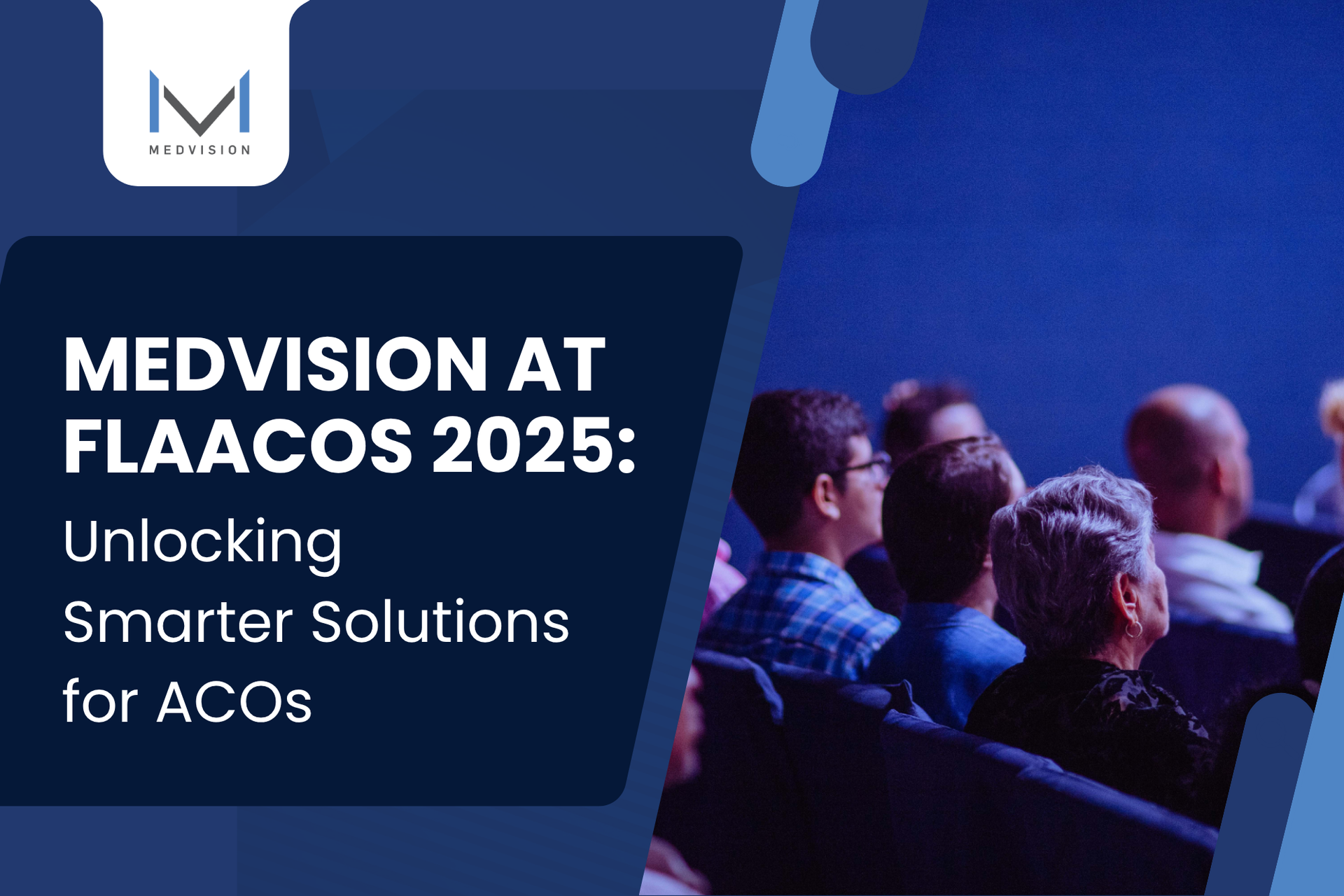Value-Based Care Models Explained: ACOs, PCMH, and Beyond
As healthcare costs continue to skyrocket, patients and providers scramble to address financial challenges. The pressing question is how far this can go without compromising the quality of care.
Is it possible to genuinely transform healthcare by shifting the emphasis from quantity to quality, embracing the principles of value-based care?
Let’s explore value-based care in greater detail, including the different value-based care models and how each impacts the provider and patient experience.

Understanding Value-Based Care
Before value-based care, the healthcare industry operated on a fee-for-service (FFS) model where providers receive reimbursement for each service they deliver. This system incentivizes more tests, treatments, and procedures, often disregarding patient outcomes. The result? A focus on quantity rather than quality.
Value-based care flips this script by emphasizing outcomes and patient well-being as the primary metrics for success. This shift encourages healthcare providers to deliver more effective, patient-centered care.
Read More:
How Value-Based Care Overtook the Fee for Service Model
Value-based care aims to provide better healthcare value, meaning improved patient outcomes at a lower cost. Several main objectives drive this transformation:
Patient-Centered Care
Value-based care reorients healthcare around the patient's needs and preferences. This approach focuses on more individualized treatment plans, shared decision-making, and a comprehensive view of the patient's health and well-being.
Read More:
Enhancing Quality and Efficiency in Value-Based Care with PHOs
Reduced Cost
By focusing on preventative measures, early interventions, and more efficient care delivery, value-based care aims to reduce the overall cost of healthcare, making it more affordable for patients and sustainable for the system.
Elevated Population Health
Value-based care also takes a proactive approach to health management by emphasizing preventive care and addressing the social determinants of health. The goal is to keep populations healthier, reducing the burden on the system.
Read More:
What to Look for in Population Health Management Software
Transitioning to value-based care offers far-reaching benefits, including better patient outcomes, lower expenses, provider rewards for efficiency, and a move toward proactive, preventive care. Understanding this shift sets the stage for exploring specific value-based care models like Accountable Care Organizations (ACOs), Patient-Centered Medical Homes (PCMHs), and more.
Knowing how each model works brings you one step closer to operationalizing value-based care principles and reshaping the healthcare landscape.

How ACOs Lead the Way to Healthcare Reinvention
ACOs are collaborative networks of healthcare providers, including physicians, hospitals, and other healthcare professionals, who come together to deliver coordinated care to a specific patient population. An ACO’s defining feature is its accountability for its designated population's quality, cost, and overall care experience.
Read More: How ACO Integration in Health Care Influences Outcomes
The primary goals of an ACO include:
- Improving care coordination by fostering collaboration among providers.
- Ensuring the delivery of high-quality care.
- Controlling costs by aligning financial incentives to reduce unnecessary spending.
This approach benefits patients through better health outcomes and offers financial advantages for patients and payers.

PCMHs: A Personalized Path to Health and Wellness
A PCMH is a healthcare delivery model coordinating care among various providers, including physicians, nurses, pharmacists, nutritionists, and social workers. Though ACOs and PCMHs share the same goals in ensuring that patients receive well-connected, high-quality care that is efficient and accessible, their approaches are fundamentally different.
PCMHs revolve around individual patients, carefully examining their living arrangements and social needs. They are also adept at managing evolving patient care, including the transition from assisted living to more advanced levels of care.
By honing in on each patient’s unique care needs, PCMHs help shape a future where healthcare is not just about treating illnesses but nurturing health and ensuring better lives for all.

Exploring Other Types of Value-Based Care Models
The healthcare industry's journey towards reform and efficiency gives rise to many value-based care model definitions, each designed to address specific challenges and opportunities within the system.
Bundled Payment
A bundled payment system compensates healthcare providers for managing a patient’s condition, regardless of the number of individual treatments, tests, or procedures. This setup encourages them to work together efficiently, minimize complications, and avoid duplicate procedures. This model fosters collaboration and streamlined care by maintaining the same payment even when multiple providers are involved.
Shared Savings
In a shared savings setup, payers reimburse providers much like an FFS model, but with a slight variation. Payers divide the incentives among ACO participants using agreed-upon formulas. They calculate these formulas based on how much the payer saved in delivering services. The payment relies on providers meeting certain quality and spending targets. When they hit these benchmarks, providers share the cost savings with payers.

Shared Risk
A shared risk model holds providers accountable to the ACO, amplifying financial rewards and risks. Providers must ensure their spending remains at or below the target rates to secure these rewards. Exceeding these limits would require them to cover some or all extra costs.
A study on value-based risk sharing underscores the challenges inherent in this system, such as the need for a genuine alignment between the healthcare system and payer and the shift from FFS to value-based care. However, it’s important to note that the long-term benefits, such as improved quality of care and significant reductions in overall medical costs, make this approach highly compelling.
Global Capitation
Global capitation stands at the other end of the risk-sharing spectrum. Here, providers carry the entire risk. They receive a fixed amount for each patient and can retain any savings they generate. However, it also means they are fully responsible for covering all the losses. These models often come with extra incentives in the form of value-based payments.
In the context of ACO Realizing Equity, Access, and Community Health (REACH), one of the Centers for Medicare and Medicaid Services’s (CMS) recent healthcare delivery models, global capitation can be particularly advantageous when accountable care is effectively put into action.
What makes it appealing is that organizations taking on full risk end up with a larger share of the savings, as CMS takes a smaller cut. If you deliver high-quality care consistently, opting for global capitation is a strategic choice.
Read More: What Is ACO REACH: A Look into Risk and Equity

Navigate Value-Based Care Models with QuickCap!
Moving towards value-based care is a positive step, but healthcare providers require appropriate tools and resources to manage this shift effectively. That's where reliable healthcare administration software like MedVision's QuickCap 7 (QC7) comes into play.
QC7's intuitive interface and robust features empower you to adapt to value-based care models seamlessly. With QC7, you can:
- Enhance care coordination through integrated communication and data-sharing features.
- Track performance using extensive and customizable reporting configurations.
- Stay compliant with HIPAA-standard electronic data interchange (EDI) and automated auditing capabilities.
- And more!
Value-based care models are the future of healthcare, and QC7 is your partner in this transformative journey. It's time to embrace a future where quality healthcare is not just a goal but a reality.
Unlock the Future of Quality Healthcare Today!
References:
- ACO REACH | CMS Innovation Center. “ACO REACH | CMS Innovation Center.” innovation.cms.gov, March 7, 2022. https://innovation.cms.gov/innovation-models/aco-reach.
- American Hospital Association. “Accountable Care Organizations | AHA,” n.d. https://www.aha.org/accountable-care-organizations-acos/accountable-care-organizations.
- Carroll, Lynn. “Capitation Payment Model Has Potential to Rein in Costs While Improving Outcomes.” MedicalEconomics, May 12, 2023. https://www.medicaleconomics.com/view/capitation-payment-model-has-potential-to-rein-in-costs-while-improving-outcomes.
- Centers for Disease Control and Prevention. “Patient-Centered Medical Home (PCMH) Model | Cdc.Gov,” September 5, 2023. https://www.cdc.gov/dhdsp/policy_resources/pcmh.htm.
- Hagan, Kathleen, and Kathleen Hagan. “Value-Based Risk Share.” The Actuary Magazine, August 5, 2021. https://www.theactuarymagazine.org/value-based-risk-share/.
- HealthCare.gov. “Payment Bundling - Glossary,” n.d. https://www.healthcare.gov/glossary/payment-bundling/#:~:text=A%20payment%20structure%20in%20which,treatment%2C%20test%2C%20or%20procedure.
- “Shared Savings Program | CMS,” n.d. https://www.cms.gov/medicare/payment/fee-for-service-providers/shared-savings-program-ssp-acos.
Recently published articles
Keep in touch
Subscribe to get the latest update
Trending topics
Share your insights on social media
Upcoming events and company news














